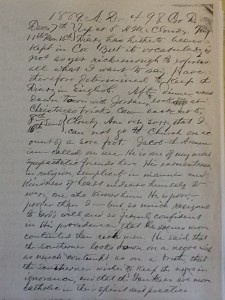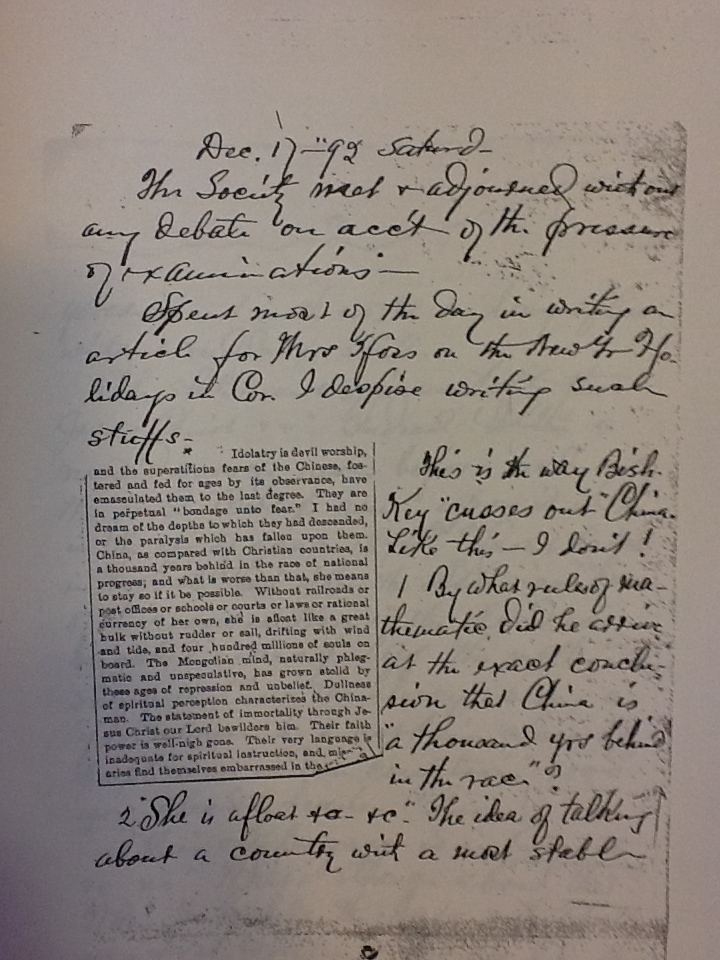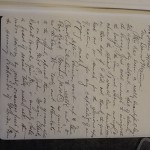…You can’t always communicate your feelings.
In the first English entry of Yun Ch’i Ho’s journal, Yun acknowledges his desire to increase his understanding and proficiency in the English language. He says his “vocabulary is not as yet rich enough to explain all what I want to say. I am therefore determined to keep a Diary in English.” While his grammar and handwriting both appear to improve throughout the next few entries, a lack of understanding of the words of his peers is apparent. Within the first page Yun discusses the faith of both a white school friend, Jordan, and another young black man, Jacob. Yun defines during his discussion of faith, the problem he has with his surroundings. Jacob is extremely devout and happy, yet Yun’s white schoolmates are part of what keeps Jacob isolated and ignorant. Similarly he feels isolated by his own racial difference that keep him isolated and ignorant in many ways.
In describing the Methodist faith he has adopted, Yun describes his doubt in a society whose treatment and disregard for black people goes against what he believed was the very foundation of their religious beliefs. Just a few weeks later, Yun writes about a published Methodist missionary statement that condemns every aspect of his homeland, crushing the minimal hope he had in finding cultural acceptance in the Emory community. What’s worse, Yun goes so as far as to accept their insults and rationalize the critical view white people have of Korea. The paper said, “the missionaries would rather go hungry [in America], than be the president of Korea.”
Yun would later describe how opposed he was to removing a white woman from her privileged existence in Georgia, to a less stately home in Korea explaining that it would be an insult to her. Despite this conclusion that reached Yun much later in his life, as the time of writing his diary he was clearly hurt by the derogatory depiction of his homeland and which contributed to his lack of confidence in romancing women while at Emory. The second hand evidence published about Yun’s time at Emory suggests other influences of romantic suppression on him. This evidence stands out to me as a real blow to a man’s self esteem, especially one who is already so isolated and alone.
Due to cultural and social divides that still exist at Emory today, I have seen first hand how limiting these divisions can be. Even in an academic world where our professional networks cross all race, gender and religious barriers, there are still pronounced obstacles in social and romantic settings. There are ethnic groups that exist almost entirely independently on campus, gender equality groups that still avoid other social organizations and religious groups that recruit as competitively as Greek life.
There are still nostalgic cultural bounds that form the expectations many students face at home. Even in a place that brings Jews, Muslims and Christians together in droves, the possibility of pursuing a romantic relationship across those barriers is still questionable. Things that define our family’s past can make crossing the paths and boundaries almost impossible as it conflicts with our effort to seek our family’s approval. Even when the home we have here is open and accepting (which it certainly isn’t always) the homes that we go back to are often still isolated and underhandedly discriminatory.







